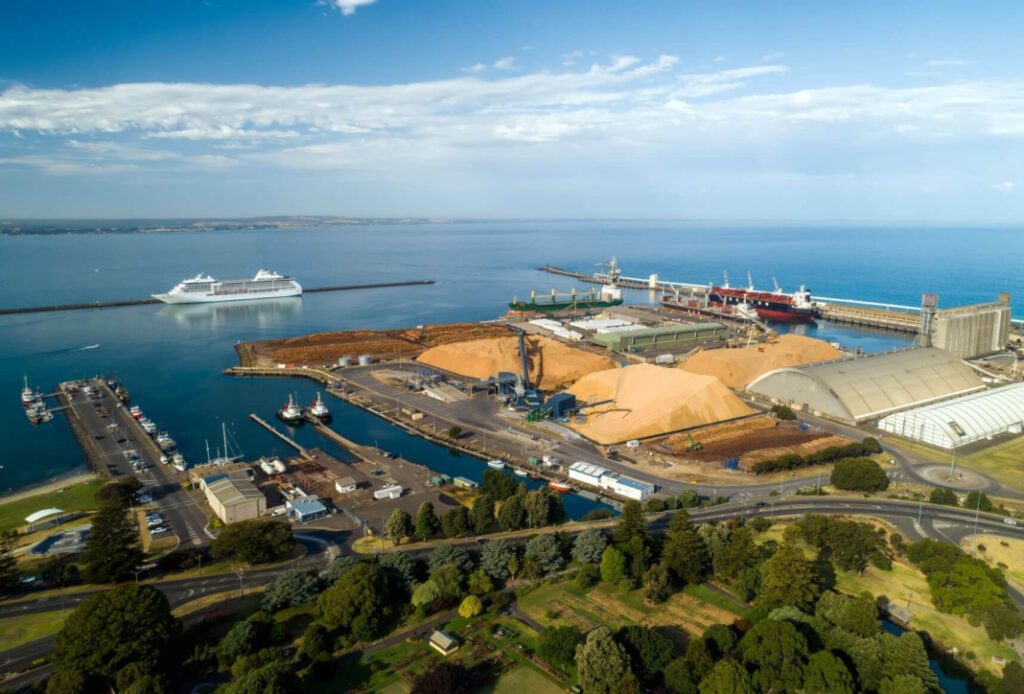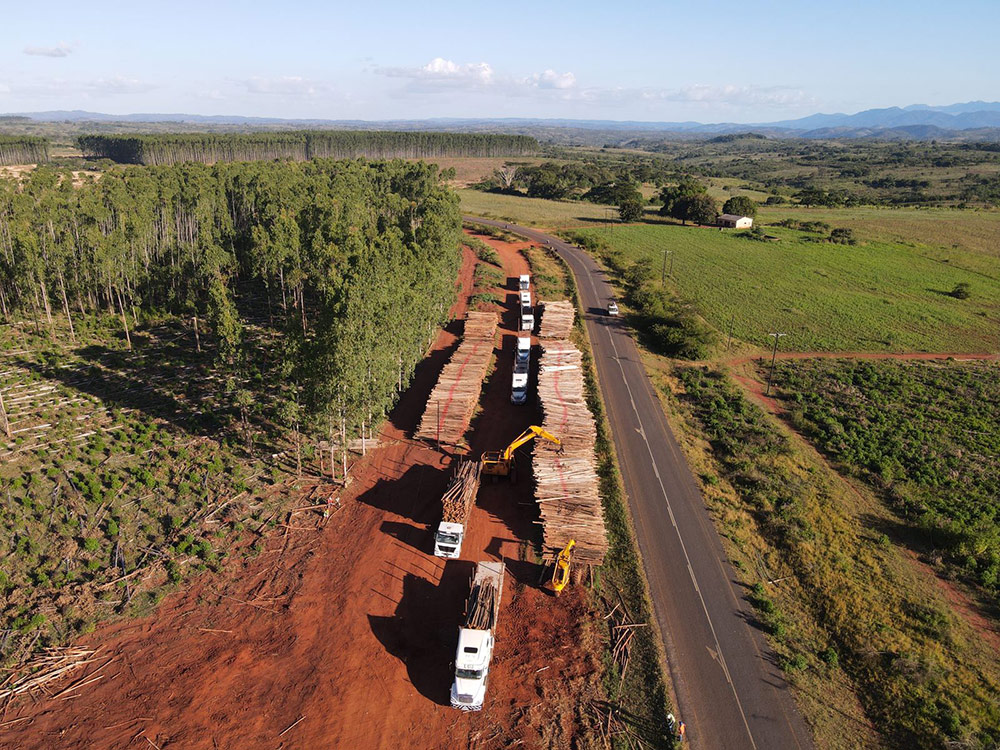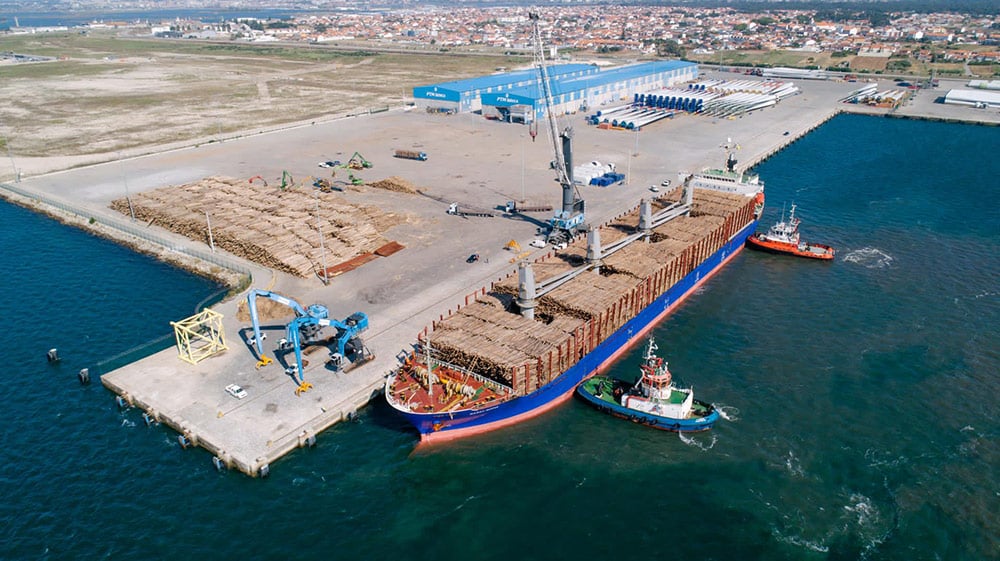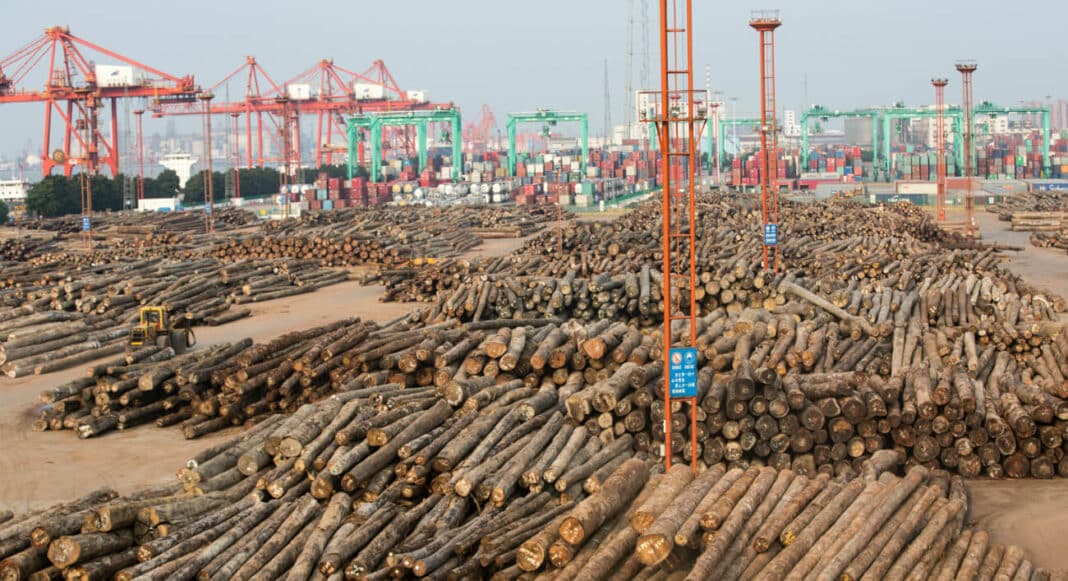Authoritative reports confirm that China is establishing and financing wood export depots in Australia and New Zealand, paying top dollar for logs from small-scale forest growers.
“These ‘timber head-hunters’, backed by the Chinese government, are bypassing larger producers to concentrate on a ‘mixed bag’ of logs, offering vendors prices well above their value to gain market share,” a reliable source told Wood Central.
“They have already accumulated stock for other markets and have now switched to Chinese export-grade logs.
“Also, there has been some haggling over prices originally offered ‘at the gate’, another fly in the ointment.”
Wood Central believes Chinese-backed operates from two holding yards, one at New Zealand’s Wellington Harbour port and another at Portland in Victoria.

The operations are legal, but again, it reflect the lengths China will go to satisfy an insatiable demand for logs and sawn timber, competing against India, which now buys 98% of Australia’s total softwood exports.

China has established similar log holding yards across southeast Asia and Africa, notably Mozambique, where 80% of its timber exports are destined for the People’s Republic.
This demand for forest products presents both opportunities and challenges for Mozambique. As the country’s sixth-largest export, timber represents one of the most critical industries and sources of income.

However, the intense search for resources has put pressure on the sustainable management of forests.
To generate greater domestic value-added products and employment through the local processing of Roundwood, an export ban on first-class timber in the form of logs has been in place since 2007.
The effectiveness of this ban on processing activity is debatable.
Virtually no Mozambican-owned companies are engaged in timber export; the international trade of the country’s timber is mainly operated by Chinese companies, which export the wood to the Chinese market.

China is almost the only market for Mozambican timber, and as such, this market exhibits some peculiar features.
Contrary to price trends of global forest products, sawn timber fetches a lower unit price than logs due to the preference of manufacturers in China who are willing to pay a premium for logs, which are essential for producing antique-style furniture.

Exporting sawn timber means that the product loses value on the Chinese market and that a Mozambican-based company must face the costs of running a sawmill and competing with timber from countries that have not illegalised the export of logs.
The result is squeezed profit margins and a strong incentive to break the log-export ban.
Because the share of illegal activity in the timber industry is estimated to be large, integrating these illegal activities into the formal economy could generate significant revenue for the government through taxation.
It would also provide greater control and oversight of logging activities than is currently the case.






